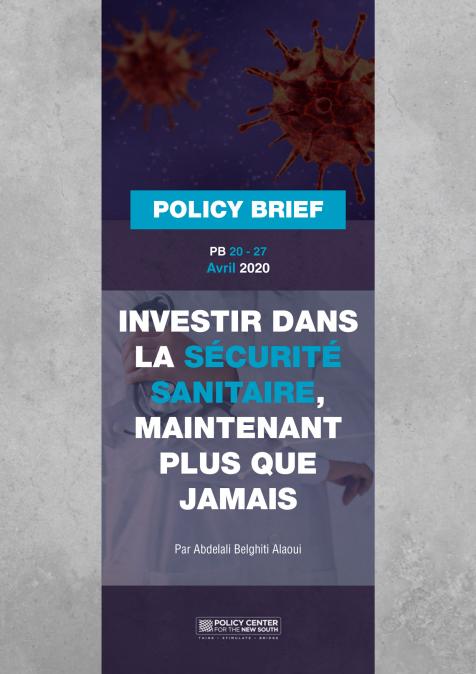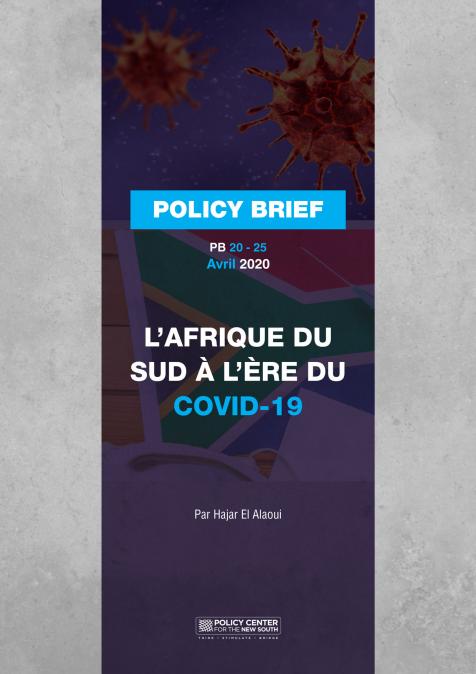Publications /
Opinion
The author of this opinion, Ahmed Rachid El-Khattabi, is a 2018 alumnus of the Atlantic Dialogues Emerging Leaders Program.
Historically, urban design has been guided by a philosophy that places human development in opposition to the natural world. Consequently, many cities have evolved into ‘concrete jungles’, characterized by asphalt and steel, with minimal regard for green spaces or ecological balance. While contemporary urban planners increasingly acknowledge the need to embed natural elements into cities, the widespread integration of nature into urban design remains insufficient. What society often does not appreciate is that integrating nature into urban environments offers far more than aesthetic appeal: it also offers profound and measurable benefits to human wellbeing, public health, and climate resilience.
This was the central message delivered by Professor Mohammed Temsamani in his book Tanger, Naturellement. In his lecture on International Biodiversity Day (May 22, 2025), at the American Legation in Tangier, Professor Temsamani summarized a decade’s worth of research into Tangier’s native flora and fauna, and the extent to which they have (or have not) been incorporated into urban planning. With a mix of humor and historical anecdotes, Professor Temsamani described how the city’s evolving urban landscape reflects a gradual shift toward recognition of the value of integration of nature.
Over the past two decades, the city has made notable strides in restoring and remediating some of its most cherished green spaces for recreational purposes, including Perdicaris Park and Villa Harris. Though I am not personally aware of any research measuring the impact of these projects, I can only assume that the recreational benefits of these changes are substantial, given anecdotal evidence and casual observation over the years. Locals and visitors alike increasingly rely on these spaces for leisure, exercise, and mental respite—activities that are known to contribute to improved public health and social cohesion.
The efforts made in Tangier over the past couple of decades offer a promising example of integrating nature into its urban design, particularly through efforts that enhance recreational spaces. Though these developments are a step in the right direction, they do not yet fully harness the broader range of benefits nature can provide. More importantly, however, efforts that solely prioritize recreational spaces without consideration of the broader benefits that nature can provide may undermine resilience efforts. These benefits, referred to as ecosystem benefits, include:
- Carbon sequestration, helping to mitigate climate change by capturing atmospheric CO₂, and reducing the long-term costs of climate-related disasters;
- Stormwater management, which reduces the risk of urban flooding and the need for costly grey infrastructure, such as storm drains and retention basins;
- Wetland water flow regulation, with natural wetlands acting as sponges that store and slowly release rainwater, recharge groundwater, and filter out pollutants;
- Biodiversity preservation, supporting native species and pollinators essential to agriculture and food security;
- Urban heat island mitigation, as vegetation and green spaces help reduce surface and air temperatures, reducing energy demand for cooling, and lowering heat-related health risks;
- Mental health improvements and lower healthcare costs, including reductions in eco-anxiety, depression, and stress-related illness.
Nature-based solutions (NbS) offer a framework for urban development that allows cities to more fully harness ecosystem benefits by working with nature rather than against it. NbS interventions include green roofs, urban forests, restored wetlands, and permeable surfaces, all of which offer environmental, social, and economic co-benefits. By leveraging the functionality of ecosystems, NbS can help cities become more resilient to hazards, and more livable.
The urgency of pursuing NbS cannot be overstated. As of today, roughly 56% of the global population lives in urban areas, a figure projected to rise to 68% by 2050. Simultaneously, the planet is on the verge of surpassing the critical threshold of 1.5°C of global warming, perhaps within the next two years. These intersecting trends underscore the need for urban planners, policymakers, and communities alike to prioritize sustainable, adaptive solutions.
Quantifying the benefits of NbS—through indicators such as reduced healthcare expenditures, improved air and water quality, lower infrastructure costs, and increased property values—can strengthen both political and public support. To advance this agenda, greater public investment is needed to support applied research, pilot projects, and long-term monitoring that demonstrates the full potential of NbS at scale.





